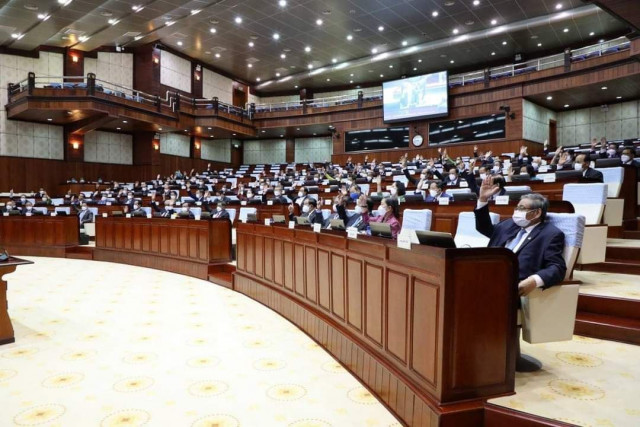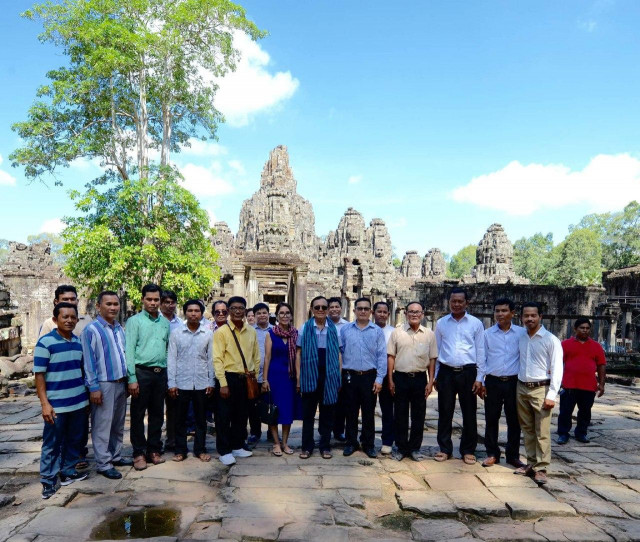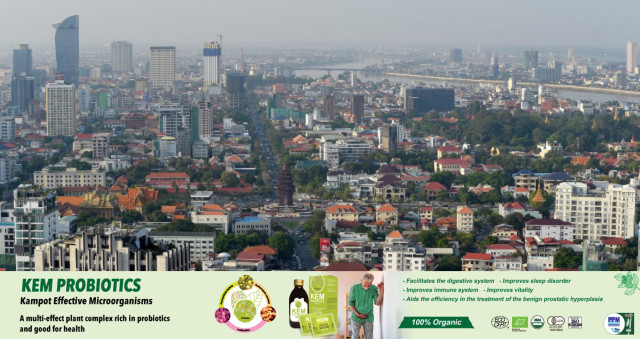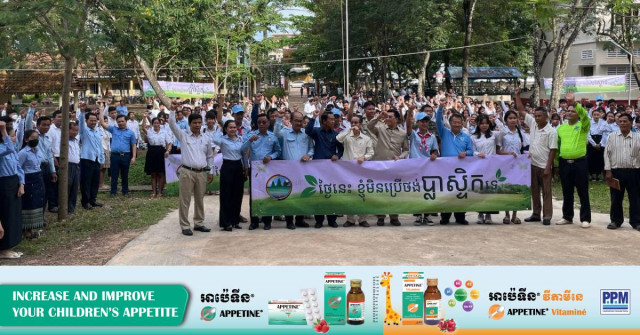Critics Reject Authorities’ Invitation to Discuss the Constitutional Amendments, Saying It Is Too Late

- By Lay Sopheavotey
- and Teng Yalirozy
- July 31, 2022 1:30 PM
PHNOM PENH — Civil society groups responded to the Ministry of Justice's invitation to discuss the Cambodian government’s proposed amendments to the Constitution, saying this would be meaningless since the National Assembly has already approved them.
On July 29, the Ministry of Justice issued a press release inviting political parties and civil society groups who had criticized the government’s proposed amendments to the Constitution for a discussion at the ministry. Journalists have also been invited.
According to the press release, the meeting may be held on Aug. 2 or 4, the time and date to be determined by civil society and political party representatives planning to attend.
“The Grassroots Democratic Party would have been happy to attend if the invitation for a consultative meeting on the 10th
Constitutional Amendment had taken place at least one week before the National Assembly had approved it,” the party said on its Facebook page on July 30.
This invitation issued after the vote is only meant to create a good image for the government, which requested these amendments, the party added in its response.
The amendments were passed on July 28 by 105 of the 106 parliamentarians during a session chaired by National Assembly President Heng Samrin and attended by Prime Minister Hun Sen. The amendments mostly focus on transition of power, appointment of interim prime ministers and forming the government.
Social observer Lao Mong Hay said that the invitation of the Ministry of Justice is meaningless. “If the idea to let people discuss, give opinions and consensus had been acted upon before the National Assembly approved [the draft constitution], the invitation would have some meanings,” he said on his Facebook page on July 30.
Moeun Tola, executive director of the Center for Alliance of Labor and Human Rights (CENTRAL), said on July 30 that in view of the importance of the constitution, it is crucial to have all people in the country given the opportunity to comment on any amendment planned. “The Constitution is the supreme law.
“[S]o if you want to change something, you should listen to the opinions of the people and let the people give their opinions before the law is passed, not after the law is passed,” Tola said, adding that this country does not belong to any political party.
Heng Kimhong, head of the research and advocacy program at the Cambodian Youth Network, said that he would not attend the meeting. “The invitation to those who are dissatisfied with the amendments to the constitution is only to explain and defend…the National Assembly and [its] decision to approve in accordance with the request of the government,” he said in a statement via Telegram on July 30. “As for me, I will not participate.”
Chin Malin, a spokesperson for the Ministry of Justice, said that this meeting is not a consultative meeting, but an opportunity to explain face to face with some political parties or civil society organizations that do not fully understand the content and purpose of the 10th Amendment to the Constitution.
“This 10th amendment to the Constitution is not different from the previous nine amendments to the Constitution,” he said on July 30. “It always follows the strict procedure of amending the Constitution as stated in the Constitution. Most Cambodians support this 10th amendment, as we have seen in a series of petitions or statements of support.”
The 10th amendment to the Constitution was drafted at the government’s initiative. No civil society group or opposition political party was aware of the amendment when it was approved by the Council of Ministers on July 8, 2022.
It was not until July 14 that the Ministry of Justice held a conference on the 10th amendment to the Constitution during which Justice Minister Keut Rith said that the terms of the amendment were to deal with shortcomings in the Constitution in the national interest and would not affect the foundations of democracy and monarchy in the country.
The draft of the 10th constitutional amendment drew criticism from civil society and political parties. On July 21, four political parties submitted a joint petition to the National Assembly asking them to vote against it, fearing the amendment would weaken parliamentary power.
On July 27, around 100 civil society groups urged the National Assembly to consider suspending approval of the government-proposed amendment, saying its terms did not reflect the will of the people and would affect the country’s liberal, multi-party democracy with its parliamentary system.















